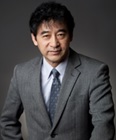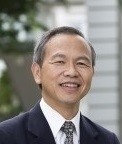| When: | Monday, April 15, 2019 - 12:00 to 13:45 |
|---|---|
| Venue: | SMU School of Law, 55 Armenian Street, Singapore 179943 |
Synopsis
It is not exaggerating to say that we have now entered into a post-human age, in which the ontological status of human beings has steadily declined, and the time has passed when human beings have previously dominated other forms of life on the earth. Instead, we have entered an era where ontological existence is shared by the earth, human beings, animals, mountains and rivers, and possibly, even by robots. Humans may appear as a weak party in the competition with non-humans, cyborgs, legal persons, and so on, for better existential opportunities. Social theory today must take up the challenges brought about by the rapid development of science and technology, reflecting over the inventions and creations which pose as fatal threats to human culture and human existence, as represented by artificial intelligence, addressing the unprecedented problems emanating from the relationships between human beings and the things they have created, and responding to the theoretical demands of increasingly complex and complicated social and economic relations. Technical Utopianism is at the best a kind of aspiration, which, however, cannot replace the reflection from the perspective of social theory on scientific and technological developments and difficult questions raised by posthumanism. If the dreams of Technological Utopianism became true, it would be imaginable that a posthuman society, where almost everything would be regulated by algorithms and digitalization, could hardly be a human society, because human existence would only be digital existence based on human rationality, which would break the balance of human faculties of the heart, the mind and the soul. In a one-dimensional society which produces one-dimensional man, everyone would become a mediocre, except the technologically privileged. Poetry, arts and music would only have forms but without passion and substance. “Boredom” would become the synonym of such a society.
Speaker

Xingzhong Yu is the Anthony W. and Lulu C. Wang Professor in Chinese Law at the Cornell Law School. His academic interests include social theory, comparative legal philosophy, Chinese law and legal history, constitutional law, new technologies and law, and cultural studies of law. Prior to joining Cornell Law School, he was with the Faculty of Law at the Chinese University of Hong Kong (CUHK) where he taught jurisprudence, constitutional law and Chinese law. He holds an LLM and SJD from Harvard Law School, and while there was a lecturer on law, senior research fellow in East Asian Legal Studies, and visiting associate professor. He has held various visiting academic positions at Beijing University's Department of Law, Northwest University of Politics and Law, Hangzhou Normal University, Columbia Law School, and the Australian National University. He is the author of numerous articles and five books, including Rule of Law and Civil Orders (2006) and Frontiers of Jurisprudence (2014).
Chair

Kung-Chung LIU holds an LL.B. and LL.M. from National Taiwan University and a Doctorate from the Ludwig Maximilian Universitaet (University of Munich). He was a Research Fellow at Academia Sinica, Taiwan until 2017. In 2003, he was a Visiting Professor at the Faculty of Law of the National University of Singapore and a Visiting Senior Research Fellow for the IP Academy of Singapore. Professor Liu has served as one of the founding Commissioners of the National Communications Commission in Taiwan between 2006 and 2007. In 2014-15, he was a Visiting Professor at the School of Law, Singapore Management University, and the Founding Director of the Applied Research Centre for Intellectual Assets and the Law in Asia (ARCIALA). In addition, he has been co-appointed Professor at the Renmin University, China (2017), and the Graduate Institute of Technology, Innovation & Intellectual Property Management, National Chengchi University, Taiwan (since 2010).
This event is by-invite only.
Last updated on 12 Jul 2021 .